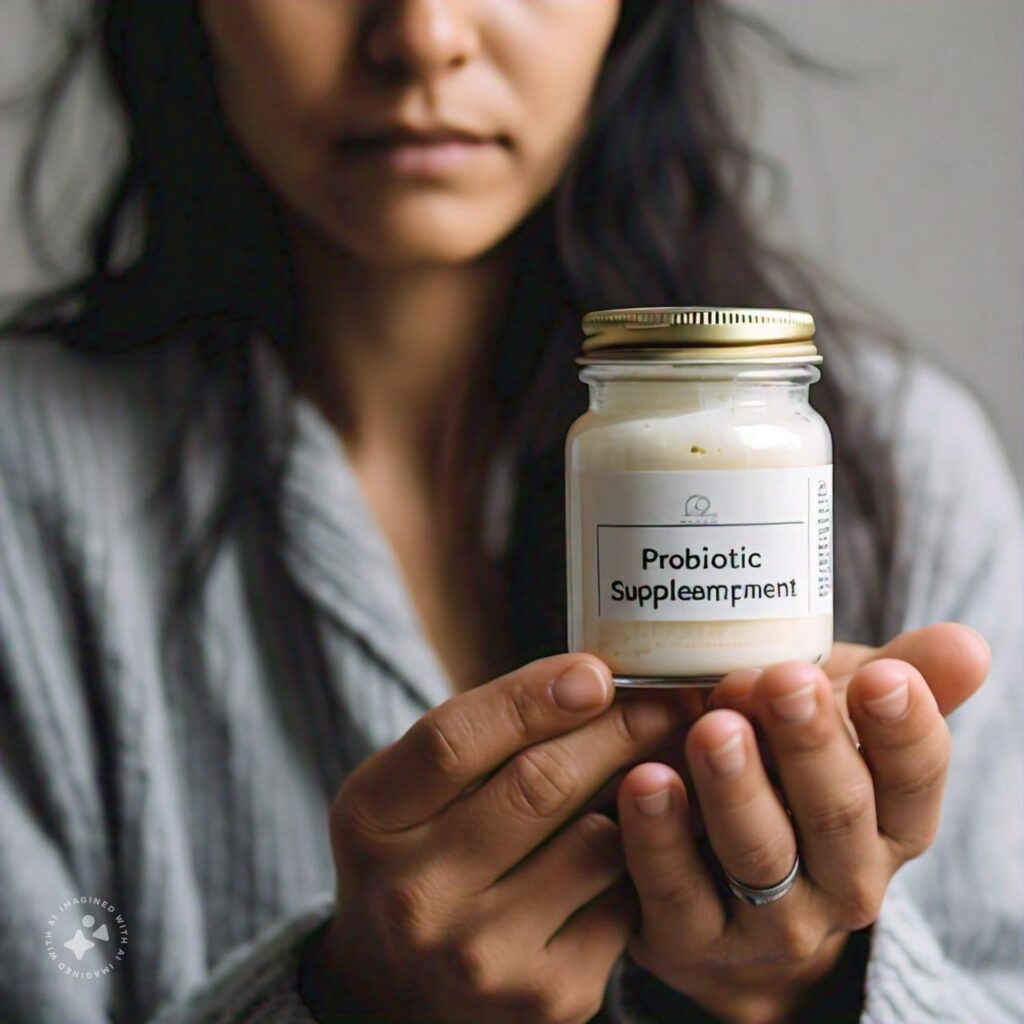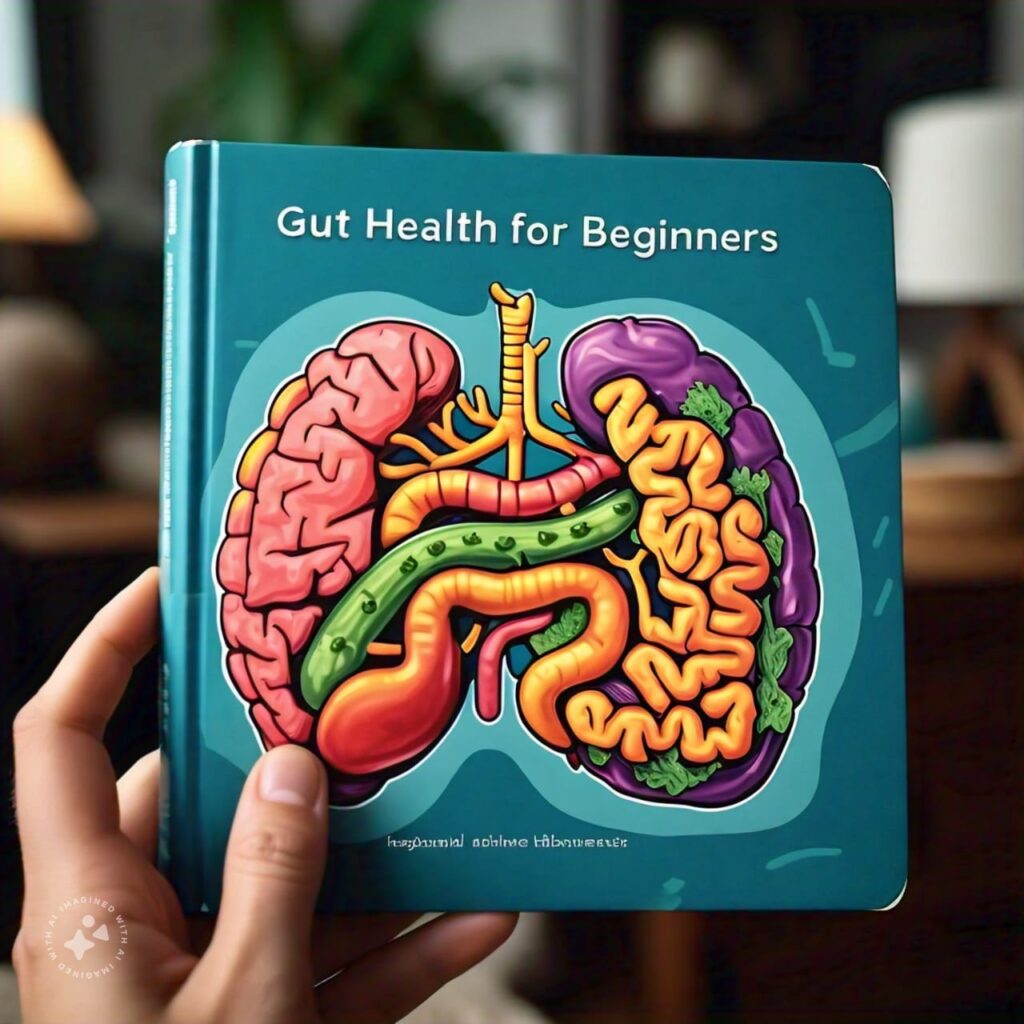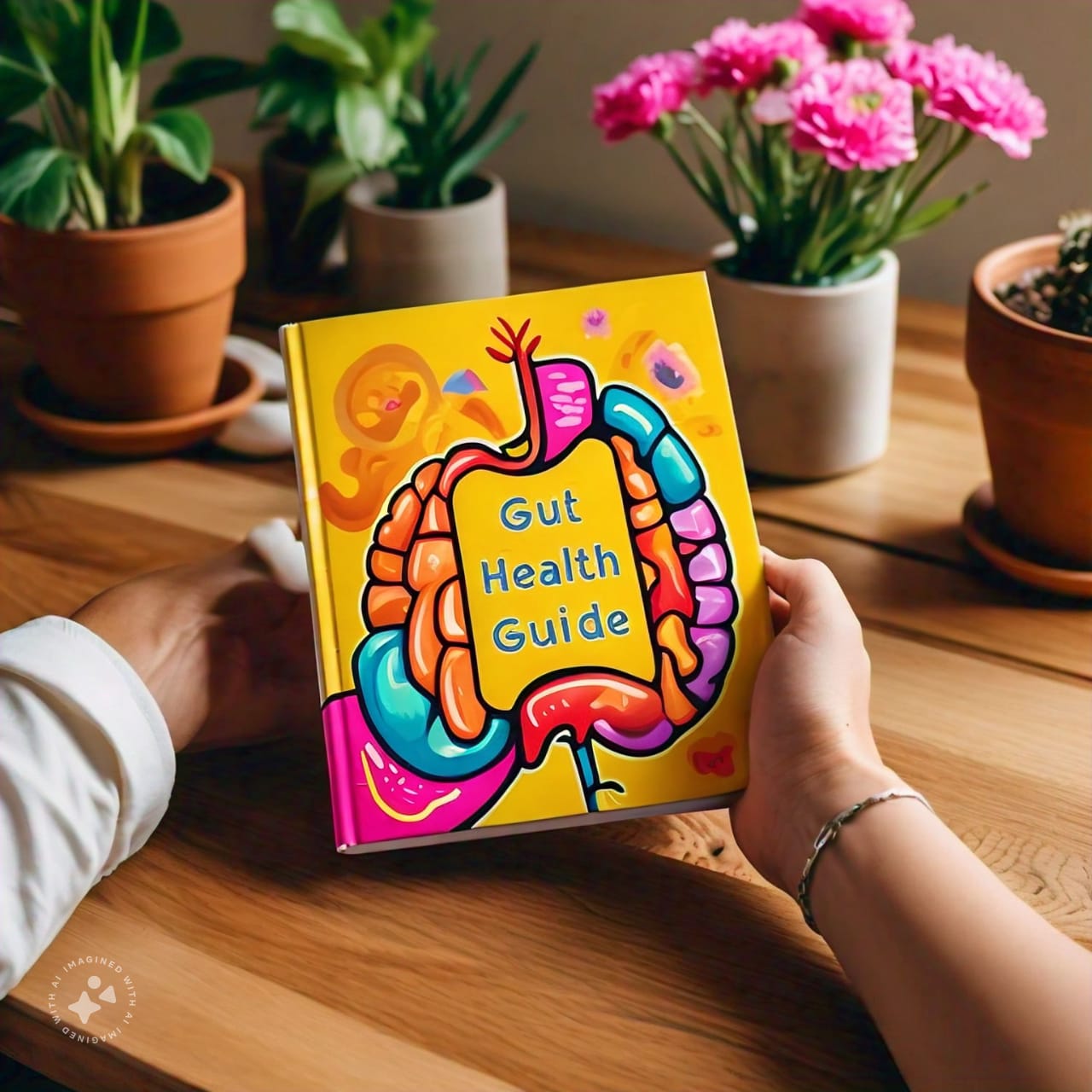Gut health plays a crucial role in digestion, immunity, and overall well-being. The human gut is home to trillions of microorganisms, collectively known as the gut microbiome, which influence various bodily functions. Here’s how different habits and dietary choices can impact gut health.

1. Eat More Fiber
Why is it important?
Fiber acts like food for the good bacteria in your gut. When you eat fiber, these bacteria grow and multiply, which keeps your gut healthy. Fiber also helps with digestion, making sure things move smoothly in your digestive system.
Where can you find it?
Foods like whole grains (oats, brown rice), fruits (apples, bananas), vegetables (broccoli, carrots), beans, lentils, and nuts are all packed with fiber. Adding a variety of these foods to your meals will improve your gut health.
How to start?
Start by adding a fruit or vegetable to each meal. For example, add a handful of berries to your breakfast or a side salad with your lunch or dinner.
2. Incorporate Fermented Foods

Why is it important?
Fermented foods contain something called *probiotics*. These are living, healthy bacteria that can help balance the bacteria in your gut. When you have a good balance of these bacteria, your digestion improves, and your immune system gets stronger.
What are fermented foods?
Common fermented foods include yogurt, kefir (a fermented milk drink), sauerkraut (fermented cabbage), kimchi (a spicy Korean dish made from fermented vegetables), miso (a fermented soy product), and kombucha (a fermented tea). These foods have been naturally processed to develop these helpful bacteria.
How to start?
Try having yogurt with breakfast or as a snack. You can also add sauerkraut or kimchi as a side dish with meals.
3. Stay Hydrated

Why is it important?
Drinking enough water helps everything in your body, including your gut, work properly. Water helps break down food in your stomach and aids in moving it through the intestines. If you’re not drinking enough water, you might get constipated or feel bloated.
How much should you drink?
A good rule is to aim for 8 glasses of water a day, though this can vary depending on your activity level, age, and climate. Pay attention to how you feel—if you’re thirsty, it’s your body telling you to drink more.
How to start?
Carry a water bottle with you and take sips throughout the day. If plain water is too boring, try adding a slice of lemon or cucumber for a bit of flavour.
4. Limit Processed Foods and Sugars
Why is it important?
Processed foods are often packed with unhealthy fats, artificial ingredients, and refined sugars. These ingredients can feed harmful bacteria in your gut and upset the balance of good bacteria. Over time, this can lead to digestive problems like bloating, gas, and even serious conditions like inflammation in the gut.
What are processed foods?
Processed foods are anything that’s been altered from its natural state for convenience or longer shelf life. Examples include fast food, sugary snacks like cookies and candies, sodas, and even some packaged meals.
How to start?
Gradually replace processed snacks with healthier alternatives. For example, swap out chips for a handful of nuts, or choose whole fruits instead of fruit-flavoured sweets.
Health Advisory:
This is an Informational Blog; Do Not take it as a Doctors Advise. Please,
Always talk to a healthcare provider or doctor before making significant changes to your diet or lifestyle, especially if you have any health conditions. Each person’s body is different, and what works for one may not work for another. Professional advice ensures your choices are safe and effective.”
5. Get Enough Sleep
Why is it important?
Your body uses sleep to rest and repair itself, and this includes your gut. If you don’t get enough sleep, it can throw off the balance of bacteria in your gut, which might lead to digestive issues. Poor sleep has been linked to problems like irritable bowel syndrome (IBS) and obesity.
How much sleep do you need?
Most adults need around 7-9 hours of sleep per night for optimal health.
How to start?
Create a bedtime routine that helps you wind down—try reading, listening to calming music, or meditating before bed. Make sure your bedroom is comfortable and free from distractions like your phone or computer.
6. Manage Stress
Why is it important?
Your gut and brain are closely connected. When you’re stressed, your brain sends signals to your gut, which can affect how it works. Chronic stress can lead to issues like indigestion, bloating, or even more serious problems like irritable bowel syndrome (IBS).
What can you do?
Managing stress doesn’t mean you have to eliminate it completely, but finding ways to cope can make a big difference. Practices like deep breathing, meditation, yoga, or simply going for a walk can help.
How to start?
Try spending just 5 minutes a day focusing on your breathing. Sit comfortably, close your eyes, and take slow, deep breaths. This simple practice can help you feel more relaxed and support gut health over time.
7. Take a Probiotic Supplement
Why is it important?
Probiotics are live bacteria that are good for your gut. Sometimes, your gut can lose some of its good bacteria, especially after taking antibiotics. Probiotic supplements can help restore the balance of bacteria, making your digestion better and even boosting your immune system.
When to consider probiotics?
If you’ve been on antibiotics or have frequent digestive issues like bloating or constipation, a probiotic supplement might be helpful.
How to start?
Talk to your doctor before starting any supplements. Not all probiotics are the same, and your doctor can help you choose one that’s right for you.
8. Avoid Overuse of Antibiotics
Why is it important?
While antibiotics are great at fighting harmful bacteria, they also kill the good bacteria in your gut. This can throw off the balance and lead to problems like diarrhea, bloating, or infections. Over time, using antibiotics too often can make your body more resistant to them, meaning they might not work when you really need them.
How to start?
Only take antibiotics when prescribed by a doctor, and follow their instructions carefully. If you’re unsure whether you need antibiotics, ask your doctor if there are other treatment options.
9. Exercise Regularly
Why is it important?
Regular physical activity helps keep your digestive system moving and promotes the growth of healthy gut bacteria. Exercise also helps reduce stress, which is beneficial for your gut.
How much exercise is enough?
You don’t need to hit the gym for hours every day. Even 30 minutes of moderate exercise, like brisk walking, cycling, or dancing, can make a big difference to your gut health.
How to start?
If you’re not used to exercising, start small. Even a 10-minute walk after meals can improve digestion. Gradually increase your activity as you get more comfortable.
10. Eat a Diverse Diet
Why is it important?
A variety of foods means a variety of nutrients, and different nutrients feed different types of bacteria in your gut. A more diverse gut microbiome is linked to better digestion, a stronger immune system, and even improved mental health.
What should you eat?
Include a range of fruits, vegetables, grains, proteins (like fish, chicken, and plant-based options), and healthy fats in your diet. Eating different types of foods ensures that you’re giving your gut everything it needs to stay healthy.
How to start?
Try experimenting with new foods each week. For example, if you usually eat apples, switch it up with berries or oranges. Adding new vegetables to your meals can also give your gut a good variety of nutrients.
Conclusion
Gut health plays a central role in overall well-being, influencing everything from digestion to immune function. Maintaining a healthy gut requires a combination of dietary and lifestyle choices that support a balanced and diverse microbiome. Incorporating fiber-rich foods, fermented products, staying hydrated, and limiting processed foods are key steps toward promoting gut health. Additionally, managing stress, getting sufficient sleep, and regular physical activity can further support the gut-brain connection.
A diverse and well-balanced gut microbiome contributes to better digestion, improved immunity, and even mental health. By making mindful choices, individuals can help their gut thrive, leading to long-term benefits for their body and mind.
Health Advisory:
This is an Informational Blog, Do Not Take it as a Doctors Advise. Please,
Always talk to a healthcare provider or doctor before making significant changes to your diet or lifestyle, especially if you have any health conditions. Each person’s body is different, and what works for one may not work for another. Professional advice ensures your choices are safe and effective.

